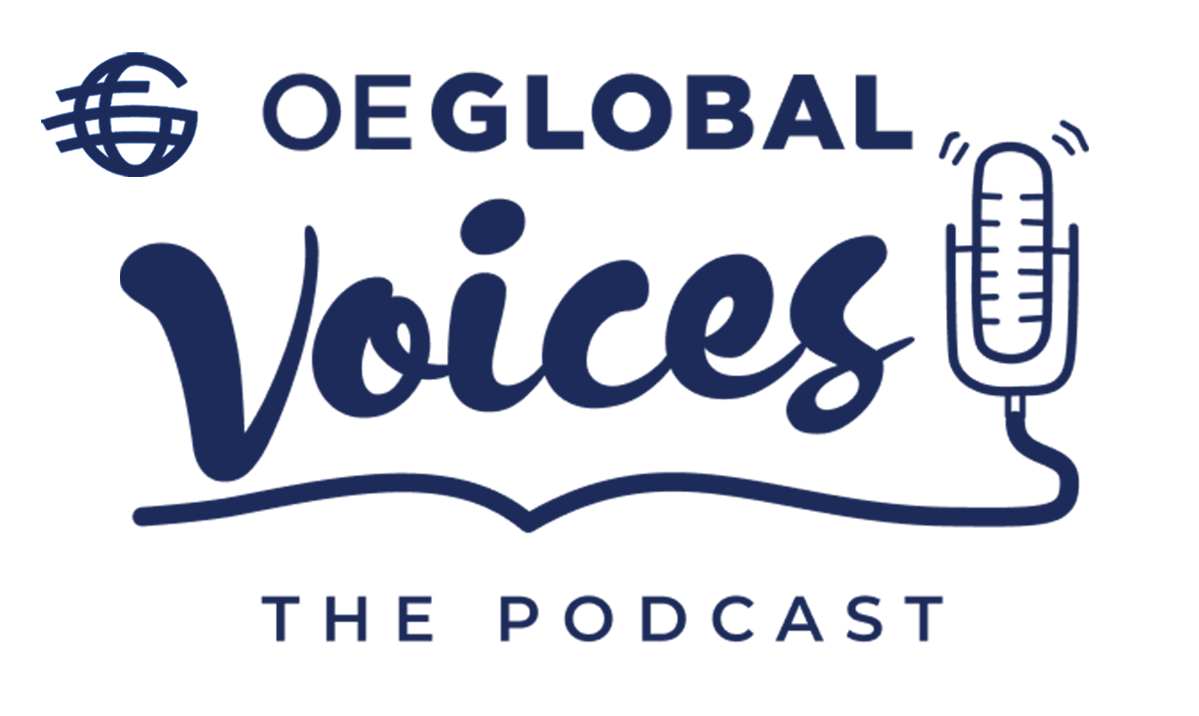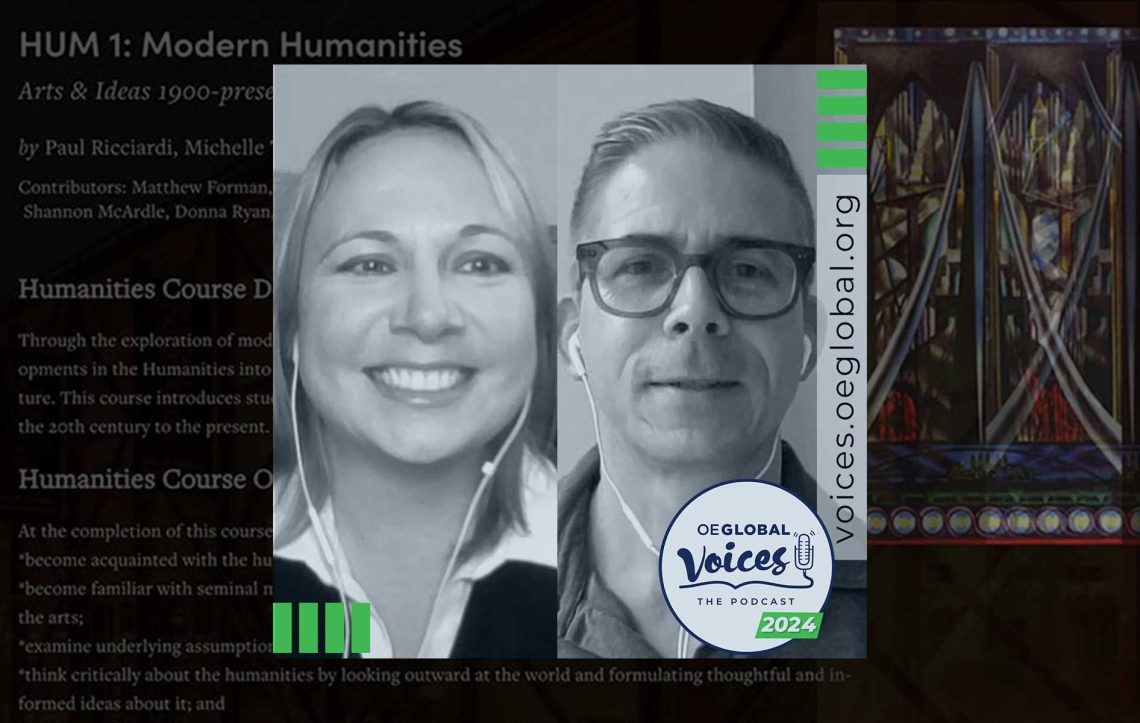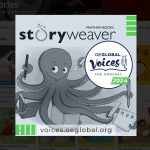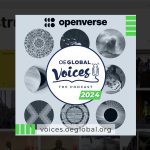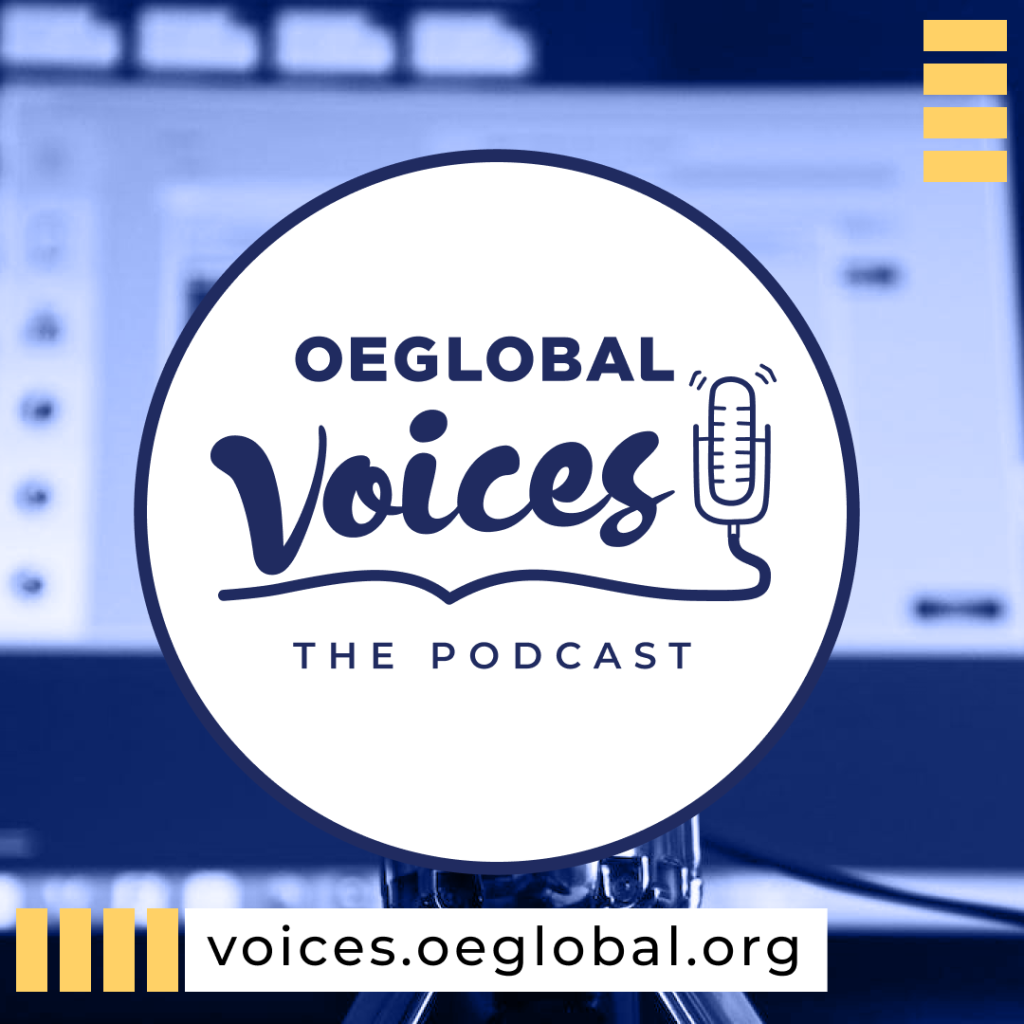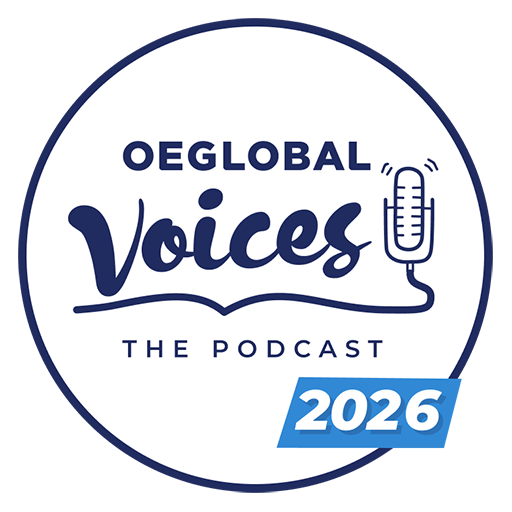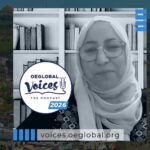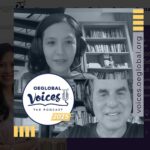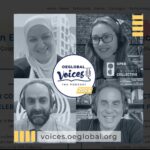In the last two weeks for nominations for the 2024 Open Education Awards for Excellence we are pleased to motivate you with the voices of Michelle Turnbull and Paul Ricciardi from Kingsborough Community College, in Brooklyn, New York, part of the CUNY system. Michelle and Paul were recognized last year with the 2023 Open Reuse / Remix / Adaptation Award for HUM 1: Modern Humanities, an OER published on the Manifold platform.
Michelle, a former English and Literature instructor and Paul, who taught Theater, came to collaborate as both becoming coordinators for Kingsborough’s College Now program. This innovative effort provides New York area high school students the opportunity to earn credit and gain experience in college level education through courses taught by high school teachers. Michelle and Paul started their roles in coordinating the Modern Humanities course, which situates post 1920s art and culture in the context of history, and were given the challenge as well of navigating all the challenges of the COVID lockdown.

You will hear how the program was tasked with replacing expensive textbooks that were not available for students. This was the motivation to develop the Modern Humanities open textbook but as you will hear, it developed into the ideal platform for supporting this course and some of the interesting ways Michelle and Paul addressed the access to important media and resources for a subject area that is mostly outside of the public domain.
They share why the Manifold publishing platform works so well for the students and teachers in the Modern Humanities course as well as some ideas as to what they are planning to add in the future. And listen as well for a story of how an unexpected connection to Robin Derosa at Plymouth State University played a factor in this creation of this beautiful and valuable resource.
In This Episode
FYI: For the sake of experimentation, this set of show notes alone was generated by AI Actions in the Descript editor we use to produce OEG Voices.
Transitioning to OER: Modern Humanities
In this episode, Paul Ricciardi and Michelle Turnbull discuss the transition from traditional textbooks to Open Educational Resources (OER) among high school faculty. Michelle emphasizes the difference in how textbooks are perceived as roadmaps, while OERs, or ‘Readers’, provide a structured and organized curriculum guide. They introduce ‘Modern Humanities’, an OER that covers the intersection of modern art and culture. The discussion highlights how this resource is particularly useful in teaching about historical events such as World War One.
00:00 Highlight Intro Quotes
00:53 Welcome to OE Global Voices Podcast
01:12 Meet the Award-Winning Guests
02:25 Exploring Kingsborough Community College
03:16 The College Now Program
07:52 The Birth of an Open Textbook
10:03 Challenges and Solutions in OER Creation
15:14 The Power of Collaboration
15:48 Using Manifold for Publishing
18:57 Future Plans and Reflections
22:54 Closing Remarks and Musical Outro
Podcast: Play in new window | Download
at Descript.com
Additional Links and Quotes for Episode 69
We really try and focus on the intersection of the humanities, right? So if you’re, looking at a piece of art just from the 1920s, we want the students to understand the historical context behind it and the artist’s biography, right? We’re looking at the music and how it relates to the art and how it relates to the history.
Michelle Turnbull on the aim of Modern Humanities
It’s been interesting because most of our faculty members are high school teachers, and so they come from that culture. Textbooks have a very different sort of connotation, right? It’s like it becomes the roadmap. Our OER– I like to call it a ‘Reader’– what’s nice about it is that it is structured and organized in a way in which we, in terms of our curriculum guide, suggest that they organize the course.
Paul Ricciardi on how Modern Humanities compares to high school textbooks
- 2023 OE Award for Remix/Reuse/Adaptation (OE Global)
- HUM 1: Modern Humanities on Manifold
- Kingsborough Community College
- College Now Program
- Open Education Excellence: Kingsborough Faculty Takes Center Stage (KCC Ovations, Kingsborough Community College)
- Manifold
- 2020 OE Award for Open Tool (OE Global)
- Michelle and Paul Presentation at OEGlobal 2023
- Exploring Open Education Publishing Platforms (CCC OER Webinar, May 2024)
Paul Ricciardi: Michelle and I work steering the ship. And then we were always collaborating. Over time we were able to get grants from Kingsborough to pay faculty members. So most of the material in our Reader was harvested by faculty members who are teaching the course and who were looking for things that their students would respond to.
Michelle Turnbull: That’s the important thing, right? If the faculty have a hand in creating it then they’re more likely to want to use it in their classrooms, right? And they have some kind of investment it and what the students can do with it.
Paul Ricciardi and Michelle Turnbull on teaching faculty having input to the OER
We hope that the stories from Michelle and Paul inspire you to consider what you might nominate for the 2024 OE Awards for Excellence. Your action may well lead to a future guest for next year’s podcast, but more importantly, will provide the recognition to all who are nominated. Nominations are open now through June 30, 2024.
Our open licensed music for this episode is a track called Culture by MAX Synergy and is licensed under a Creative Commons Attribution-Noncommercial 3.0 License. Like most of our intro music, it was found at the Free Music Archive (see our full FMA playlist).
This was another episode we are recording on the web in Squadcast. This is part of the Descript platform for AI enabled transcribing and editing audio in text– this has greatly enhanced our ability to produce our shows. We have been exploring some of the other AI features in Descript, but our posts remain human authored unless indicated otherwise.
